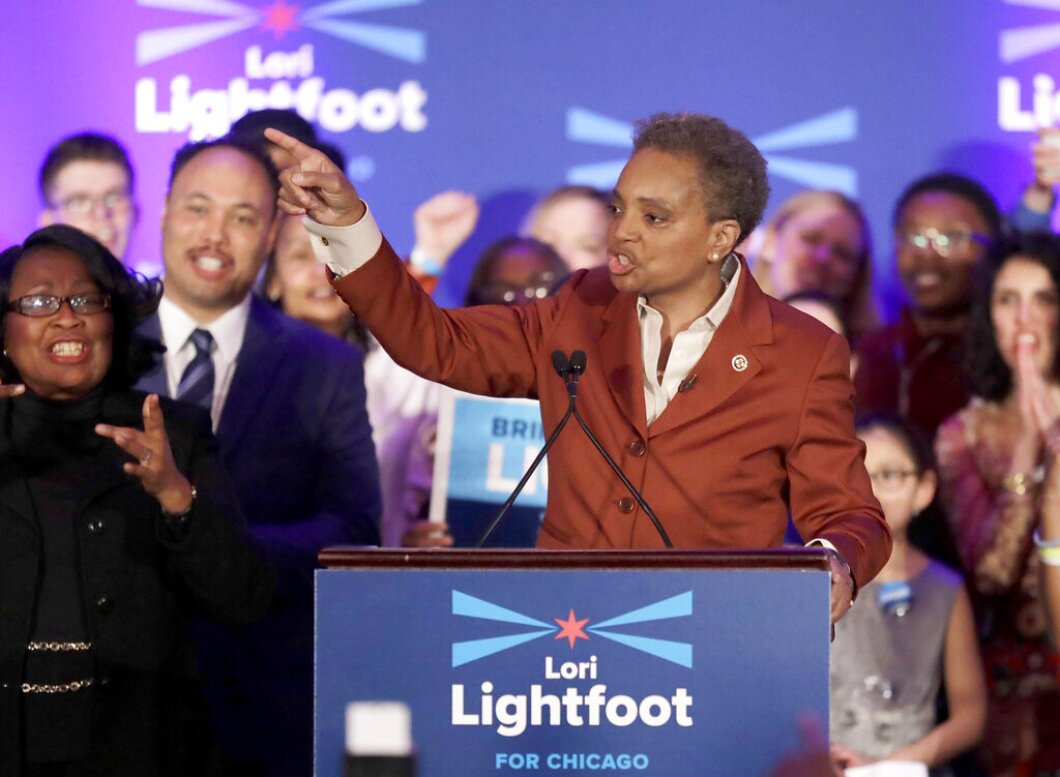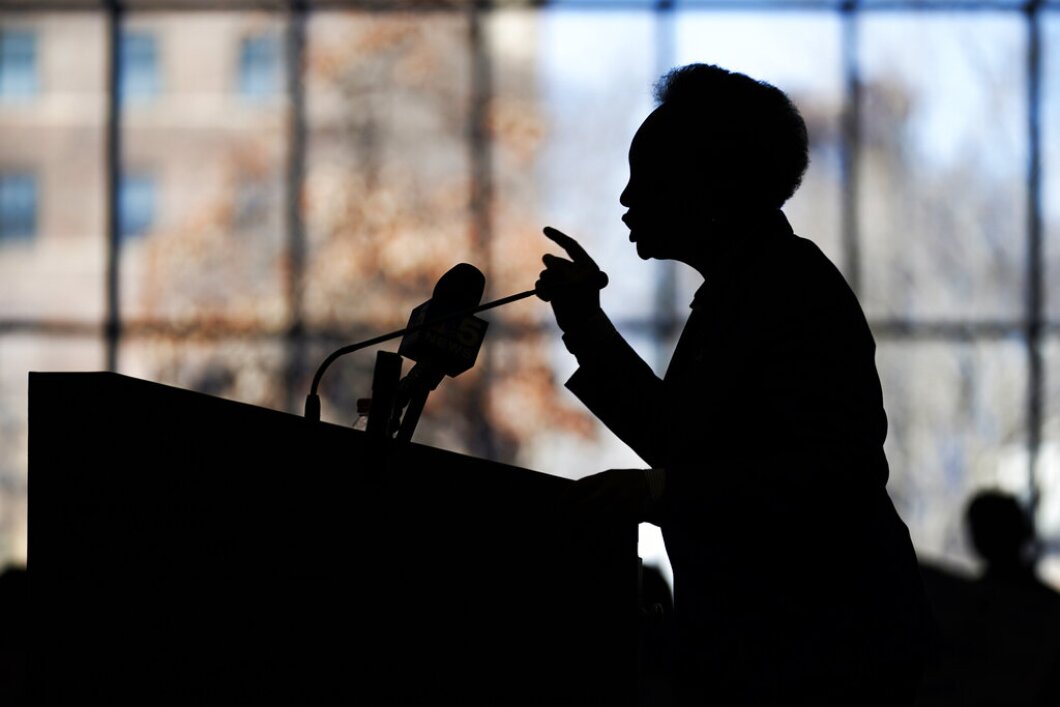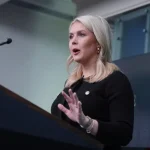
Lori Lightfoot‘s tenure as mayor of Chicago has ended, marked by four years of grappling with rising crime rates and keeping the city afloat during a nationwide pandemic. Both her job performance and the electability of her opponents led to her becoming the first incumbent to lose an election since 1989.
Lightfoot, whose term has been riddled with controversy over responses to crime, immigration, the coronavirus pandemic, and more, faced a tough reelection battle, losing to Paul Vallas and Brandon Johnson, who are advancing to the runoff.
CHICAGO MAYORAL RACE TESTS DEMOCRATS’ CRIME MESSAGE HEADING INTO 2024
She conceded the race on Tuesday night, stating that she called Johnson and Vallas to congratulate them.
“We were fierce competitors in these last few months, but I will be rooting and praying for our next mayor to deliver for the people of the city for years to come,” Lightfoot said.
She said that despite losing the election, she was standing with her “head held high and a heart full of gratitude.”
“Regardless of tonight’s outcome, we fought the right fights and we put this city on a better path, no doubt about it,” Lightfoot said. “As we all know in life, in the end, you don’t always win every battle. But you never regret taking on the powerful and bringing in the light.”
The Chicago mayor race gained nationwide attention, not only for the city’s notoriety in dealings with crime and homelessness but also because it was the first time in almost four decades that an incumbent was not on track to win reelection.
Lightfoot’s crime policies miss the mark
Lightfoot’s appointment as the first black female and first openly gay mayor signaled to many hopefuls that this would usher in a new wave of change for the city. She vowed to address the racial and economic disparities that have defined Chicago as a city for a long time, as well as tackle a rising crime rate.
Despite criticism, Lightfoot has taken a “tough on crime” stance over the years on paper. In 2022, as the reelection cycle heated up, she argued that people charged with violent crimes could not be released on bail because charges indicate a guilty sentence, per a Chicago Tribune report.
She drew backlash from several racial and criminal advocates condemning her for relying solely on police charges and forgoing due process as a solution to combat crime.
In her concession, she touted her administration’s ability to get guns off the streets of Chicago and bring down homicides.
However, critics have said her public safety policies, particularly the appointment of police Superintendent David Brown since she entered office, are not doing enough to stop crime.
While murder rates dropped off 14% in 2022 from the year prior, around 800 people were murdered under her tenure. Even now, violent crime continues to increase above pre-pandemic levels in Chicago neighborhoods.

Battling education, pandemic, and city budget
With her win in 2019, Lightfoot inherited from former Gov. Rahm Emanuel not just a high crime rate but also a city with a $28 billion of pension debt and shrinking populations.
She also faced expiring labor contracts from the police, firefighter, and public school teachers unions — two of which did not endorse Lightfoot for reelection in 2023.
The Fraternal Order of Police endorsed Vallas, and the Chicago Teachers Union endorsed Johnson. Both unions had a tumultuous relationship with Lightfoot over the years.
Lightfoot also proved to be a blunt speaker and an unswerving negotiator. Revelations of feuds with unions and other top Democrats in the city and state did not help her case, painting her as someone with a “combative nature” who is unable to work with other leaders, particularly within the educational field.
She battled with parents and educators in her campaign after sending volunteer opportunities to public schools asking for students to work on the campaign in exchange for extra credit.
Lightfoot may be the last, or one of the last, mayors to control the public school system, making decisions on repairing school facilities, appointing the CEO and board members, and negotiating teacher union contracts.
Both Vallas and Johnson, with their education experience, offered solutions to the swift decline in the Chicago Public Schools system, both in proficiency levels and attendance. Both have said they support an elected school board, which is set to begin transition in 2024.
Chicago’s pension debt sits at $33.7 billion as of December 2022, which is more than twice the size of the city’s annual budget. Roughly 80% of property taxes go to pensions, while 10% pays for other debt, according to Bloomberg.
While Lightfoot was praised for her administration’s ability to increase and accelerate pension funds, the city has since lacked the ability to pay for much-needed services — a situation her opponents latched on to during the 2023 election cycle.
Shifting sands: Coronavirus pandemic response
Lightfoot followed many Democratic mayors and governors in imposing citywide or statewide lockdowns and mask mandates, which took a devastating hit on the economy and the population.
One year after the pandemic struck, over 5,000 Chicagoans had died from COVID-19, hitting black and Latino residents the hardest. She praised her administration for their approach to the pandemic despite lockdowns and business closures prompting severe criticism from opponents.
Looking back, she said in a WBEZ Chicago interview that she had to take drastic action and force a lockdown, rather than “cajoling” people into doing it voluntarily. The hardest decision, she said, was closing the lakeshore.
“Every decision was hard. No decision was perfect,” Lightfoot said. “But we were guided by the data and the science from day one. And it served us well.
In January 2022, Chicago faced another coronavirus surge when the omicron variant hit the U.S. Chicago Public School teachers threatened to strike if the Lightfoot administration did not revert to online learning, as it had at the height of the pandemic in 2020. Classes were canceled for five days while the teachers union battled with the city.

How Lightfoot’s reign came to an end
Right away, Lightfoot’s emerging opponents in the 2023 Chicago mayor race latched on to her inability to fulfill promises she made when she was first elected.
She had been compared to former Mayor Jane Byrne, who became the city’s first female mayor in 1979.
“They both came in on a wave of reform, and then quickly were on the defensive,” Elizabeth Taylor, co-author of American Pharoah, a biography on former Mayor Richard J. Daley, told the New York Times.
During Lightfoot’s reelection campaign, she was often accused of focusing too much on smear campaigns and attacks against her fellow candidates rather than addressing problems and issues from her constituents.
Lightfoot was criticized by people across the entire political spectrum for her ineffective responses to city issues, but she had attempted to recast herself throughout her reelection as polling numbers began to show that she was in danger of being left behind.
“I’m unapologetic about the things that we have done to help working men and women in this city,” Lightfoot had said prior to election day. “And I’m unapologetic about saying to you that … the foundation that we have set over these last four years through the most difficult time that our city has ever seen, we will build upon that, and the West Side will rise again.”
Lightfoot admitted, “We made mistakes,” when asked if she had any regrets. However, she argued that she had learned from her mistakes and was being judged too harshly, as she is a black woman.
She was not afraid to call people out for their criticism of her during her 2019 campaign and after she entered the mayor’s office, famously revealed by text messages obtained by the Chicago Tribune. Lightfoot appeared to show she had a hands-on approach while repeatedly criticizing and snapping at allies and critics alike.
However, she said her outspoken nature is nothing new for Chicago and followed the personalities of her male colleagues before her.
“I personally get asked this question of, ‘Well, Mayor, you know your relationships with City Council, shouldn’t you be nicer?’ Which I have to laugh at,” Lightfoot said to the New York Times in late January 2022. “When I think about who my predecessors were — I worked for Rich Daley and I was around Rahm a lot, it’s not like they won contests for Mr. Congeniality.”






